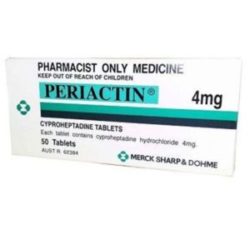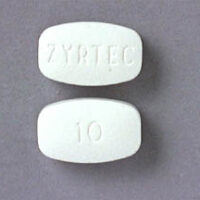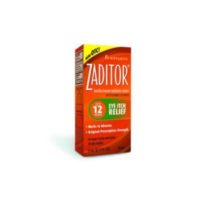Description
Drug Uses
Periactin is used to help relieve cold – and allergy–related symptoms such as hay fever, nasal inflammation, stuffy nose, red and inflamed eyes, hives, and swelling. Periactin may also be given after epinephrine to help treat anaphylaxis, a life–threatening allergic reaction.
How Taken
Consult your doctor regarding the dosage suitable for you. To avoid stomach upset take Periactin with a meal.
Warnings/Precautions
Before taking Periactin, tell your doctor or pharmacist if you have any medical conditions, especially if you have allergies to medicines, if you are allergic to any ingredient in Periactin, if you have bronchial asthma, the eye condition called glaucoma, an overactive thyroid gland, high blood pressure, heart disease, or circulatory problems, if you are pregnant, planning to become pregnant or are breast–feeding. Periactin can cause harm to the fetus. Do not use Periactin if you are pregnant. If you suspect that you could be pregnant, contact your doctor immediately. It is known that Periactin passes into breast milk. Do not breast–feed while taking Periactin. Some medicines may interact with Periactin. Therefore tell your doctor of all prescription or nonprescription medicine, herbal preparation, or dietary supplement that you are taking. Do not take Periactin if you are taking an antidepressant drug known as an MAO inhibitor. Newborn or premature infants should not be given Periactin. Elderly patients should avoid taking Periactin.
Missed dose
If you miss a dose take it as soon as you remember. However if it is almost time for the next dose, skip the missed dose and continue your regular dosing schedule. Do not take a double dose to make up for a missed one.
Possible side effects
Some of the possible side effects are- Anaphylaxis (life–threatening allergic reaction), anemia, appetite loss, chest congestion or tightness, chills, confusion, constipation, convulsions, diarrhea, difficulty urinating, dizziness, dry mouth, nose, or throat, earlier–than–expected menstrual period, exaggerated feeling of well–being, excessive perspiration, excitement, faintness, fatigue, fluttery or throbbing heartbeat, frequent urination, hallucinations, headache, hives, hysteria, inability to urinate, increased appetite and weight gain, insomnia, irritability, lack of coordination, light sensitivity, liver problems, low blood pressure, nausea, nervousness, rapid heartbeat, rash and swelling, restlessness, ringing in the ears, sleepiness, stomach pain, stuffy nose, tingling or pins and needles, tremor, vertigo, vision problems (double vision, blurred vision), vomiting, weight gain, wheezing, yellow eyes and skin Contact your doctor if any of these or other side effects occur. If you experience any of the following serious side effects, you should seek medical attention immediately.
Storage
Store Periactin at 77 °F (25 °C), excursions permitted to 59 to 86 °F (15 to 30 °C). Store away from heat, moisture, and light. Do not store in the bathroom. Keep Periactin out of the reach of children.
Overdose
If overdose is suspected seek medical attention immediately. Some of the symptoms of Periactin overdose are- Dilated pupils, dry mouth, extreme excitement and agitation, fever, flushing, stomach or bowel distress, stupor or coma.
More information
Do not share this medicine with others for whom it was not prescribed. Do not use this medicine for other health conditions. If your symptoms do not improve or if they worsen, contact your doctor
Declaimer
This is only general information, it does not cover all directions, drug integrations or precautions. You should not rely on it for any purpose. It does not contain any specific instructions for a particular patient. We disclaim all responsibility for the accuracy and reliability of this information. We are not responsible for any damage.




Reviews
There are no reviews yet.